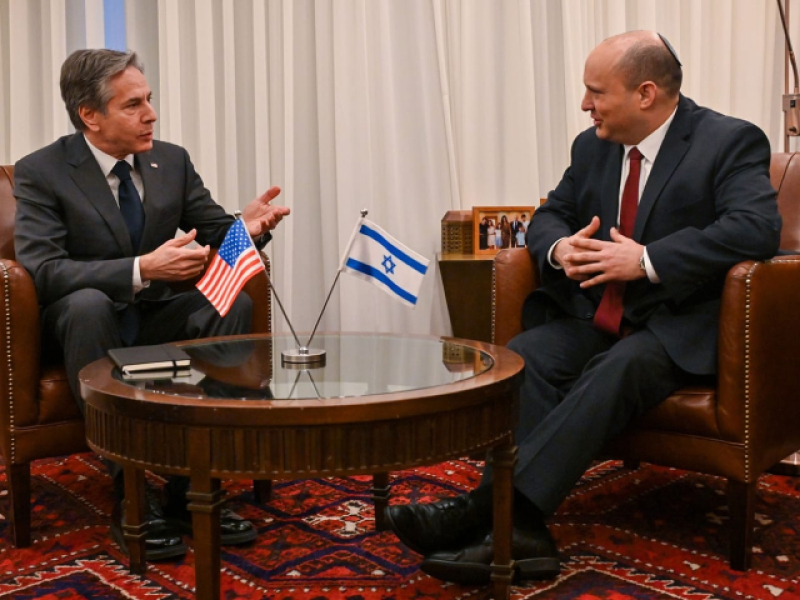
The Israeli leader said it was "disturbing" that the U.S. would consider removing the Revolutionary Guard Corps of Iran from the terror list.
On Sunday, Israeli Prime Minister Naftali Bennett admitted that he was "concerned" over the idea that the U.S. government would remove Iran's Revolutionary Guard Corps (IRGC) from the terror list just as it renews its nuclear deal with Iran. Bennett added that there were others in the region who were concerned about the move and not just Israel.
"I hope the U.S. will hear concerned voices in the region, from Israel and others, on this issue," the Israel Prime Minister remarked, as per Breitbart. "The idea that this organization will be removed from the terrorist list, from the FTO, is very disturbing and not just to us. We are still hoping and working toward preventing this from happening."
Iran issued a request to remove the IRGC from the U.S. Foreign Terrorist Organizations (FTO) as part of the nuclear deal. Despite concerns over this request that is part of the deal, Bennet thanked U.S. State Secretary Antony Blinken for his efforts "to further and expand" the Abraham Accords, which former President Donald Trump and his administration led to normalize ties between Israel and four more Arab Muslim nations.
"The Middle East is changing and it's changing for the better. We're working together to overcome the forces of darkness and build a new future," the Israel Prime Minister said.
As for Iran's nuclear talks, he said, "Deal or no deal, we will continue to work together and with other partners to counter Iran's destabilizing behavior in the region."
When asked by a reporter whether the U.S. still considered the IRCG a terrorist organization, Blinken avoided answering, instead saying hthat it "is probably the most designated organization in one way or another in the world among organizations that we designate, including the foreign terrorist organization designation."
Blinken assured everyone during a briefing with Israeli Foreign Minister Lapid that the U.S. and Israel continued to see "eye to eye" on the issue of preventing Iran from obtaining nuclear weapons, calling its commitment "unwavering."
Meanwhile, Lapid acknowledged the "disagreements" of the nuclear deal, but underscored the "open and honest dialogue" that he believed was "part of the strength of our friendship." He also reiterated how Israel is ready to "do anything we believe is needed to stop the Iranian nuclear problem program."
Lapid reminded everyone that the Iranian nuclear threat is "not theoretical" and that Iran "wants to destroy Israel." Blinken meanwhile denounced Tehran's "destabilizing activities in the region and beyond," which he said increased since the U.S. withdrew from the nuclear deal in 2018.
But at least one person remains unconvinced that the nuclear deal would finally be closed. According to Reuters, U.S. Special Envoy for Iran Robert Malley on Sunday commented that he was not confident that the nuclear deal between the world powers and Iran was imminent. Analysts also believe that the failure to restore the 2015 accord, which is set to rein in Tehran's nuclear program in exchange for lifting sanctions that impacted Iran's economy, risks increasing political tensions in the Middle East.
"I can't be confident it is imminent... A few months ago we thought we were pretty close," Malley said during the Doha Forum international conference, citing the 11-month long negotiations in Vienna that had stalled. "In any negotiations, when there's issues that remain open for so long, it tells you something about how hard it is to bridge the gap."


















